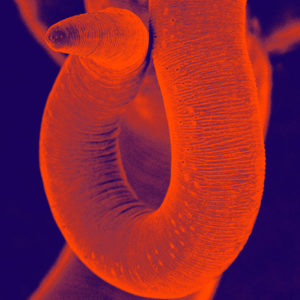Helminth Bioinformatics (Asia) (Virtual)
28 June–2 July 2021
Virtual Course
Practical hands-on training in helminth genome analysis
Summary
Please note: Due to the ongoing Covid-19 pandemic, the 2021 Helminth Bioinformatics (Asia) course will be delivered in a virtual format.
Helminths infections contribute significantly to the burden of neglected tropical diseases (NTDs) in many low- and middle- income countries (LMICs). Despite important efforts to tackle these diseases through mass drug administration programs and other methods of control and containment, NTDs due to helminths such as schistosomiasis and soil-transmitted helminthiases continue to be among the most debilitating and morbidity-causing diseases in LMICs adding significantly to the economic burden in the strained economies. Moreover, decreased susceptibility to the most used chemotherapies is emerging in the field, raising concerns about the rise of drug-resistant helminths.
Advances in sequencing technologies have enabled the production of draft and high-quality genome assemblies for the most important disease-causing helminths. In addition, reduced costs of next-generation sequencing (NGS) techniques make sequencing accessible to the wider scientific community of researchers and organisations, providing unprecedented access to genomics. Data manipulation and computational analyses are still the main challenges that limit the realization of maximum benefit and appropriate interpretation of these data.
The Helminth Bioinformatics course aims to equip participants with the skills needed to access, analyse and display large-scale genomic data. The course will provide hands-on training in read mapping, transcriptomics and genetic variation analysis, all tailored to address the challenges presented by large helminth genomes. Participants will acquire basic and advanced techniques in bioinformatics while getting familiar with computer command-line languages and public data repositories.
Target audience
The programme is aimed at researchers at various levels including Senior Research Assistants, PhD Students, Postdoctoral Researchers, Laboratory Scientists and Clinical Scientists.
This week-long course is free to attend and open to applicants based in Asia involved in helminth-related research. The course will be taught in English.
Prerequisites
The practical computational sessions will be taught exclusively through Unix/Linux. Participants should have some familiarity with the Linux operating system. This will allow participants to fully benefit from the course. There are numerous online introductory tutorials to the UNIX/Linux operating system and command line, including:
https://www.futurelearn.com/courses/linux-for-bioinformatics
http://www.ee.surrey.ac.uk/Teaching/Unix
http://swcarpentry.github.io/shell-novice/
Programme
For our virtual courses, we use video conferencing (Zoom) and instant messaging (Slack) applications along with other online and virtual machine (VM) teaching resources to deliver the different elements of the course as interactively as possible.
The course will run approximately 07:00-14:00 BST (14:00-21:00 ICT) daily. Some teaching materials may be pre-recorded but participants must be available to attend live, interactive sessions online between these times.
The virtual programme will cover several aspects of analysis of next generation sequencing data of helminth genomes. Sessions will include lectures, hands-on practical computational sessions, case studies and seminars.
Topics
- The WormBase ParaSite database
- IGV/JBrowse genome browsers
- Variant calling
- Differential gene expression
- Unix/Linux command-line
- Introduction to R
Learning Outcomes
At the end of the course, participants will be able to:
- download and display large-scale genomic data using a genome browser.
- perform basic read mapping and generate files for display on a genome browser.
- analyse read counts, report findings using basic plots.
- design and analyse transcriptomic experiments, report differentially expressed genes and apply pairwise comparisons.
- characterise genomic variation and identify SNP variants useful for phylogeographic and/or phenotypic-based comparative analyses.
- utilise unix bioinformatics tools for data formatting e.g. samtools, bedtools.
Instructors and speakers
Course instructors

Anna Protasio
University of Cambridge, UK

Arporn (Koi) Wangwiwatsin
Khon Kaen University, Thailand
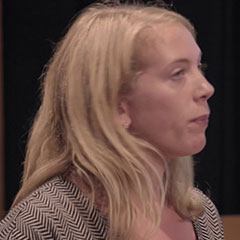
Faye Rodgers
Wellcome Sanger Institute, UK
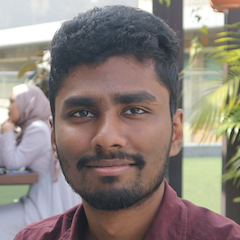
Heerman Kumar
Monash University, Malaysia
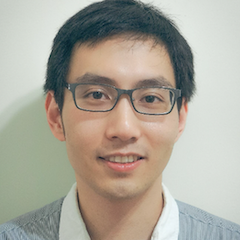
Isheng Jason Tsai
Academia Sinica, Taiwan

Jutarop Phetcharaburanin
Khon Kaen University, Thailand

Kevin Howe
EBI, UK

Martin Aslett
WGC Advanced Courses, UK

Matt Berriman
Wellcome Sanger Institute, UK
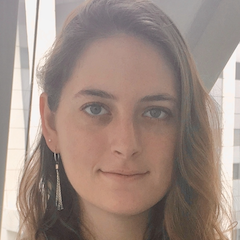
Sarah Geiger
National University of Singapore (NUS) & Genome Institute of Singapore (GIS)

Steve Doyle
Wellcome Sanger Institute, UK
How to apply
Prerequisites
The course is applicants based in Asia involved in helminth-related research. The course will be taught in English.
The practical computational sessions will be taught exclusively through Unix/Linux. Participants should have some familiarity with the Linux operating system. This will allow participants to fully benefit from the course. There are numerous online introductory tutorials to the UNIX/Linux operating system and command line, including:
https://www.futurelearn.com/courses/linux-for-bioinformatics
http://www.ee.surrey.ac.uk/Teaching/Unix
http://swcarpentry.github.io/shell-novice/
Please note that due to the virtual format for this course, participants will require minimum computer specifications and internet access to fully benefit. A guide to these requirements can be found here (PDF).
How to Apply
Please click the Apply button above to begin the online application process. Places are limited and will be awarded on merit. If you have any problems with the online application process, please contact us.
Please note: Applications must be supported by a recommendation from a scientific or clinical sponsor (e.g. supervisor, line manager or head of department). A request for a supporting statement will be sent to your nominated sponsor automatically during the application process. Applicants must ensure that their sponsor provides this supporting statement by the application deadline. Applications without a supporting statement cannot be considered.
Cost
Cost
The course is subsidised by Wellcome Genome Campus Advanced Courses and Scientific Conferences and is free to attend for non-commercial applicants.
Please contact us for the commercial fee.
Testimonials
Feedback from the 2019 course (Africa)
“The training was great, the delivery was excellent and the course manual was also good. The training will have a big positive impact on my research capability. I’m most grateful for such a singular opportunity. All the modules were relevant. The format of the course worked perfectly.”
“All topics covered were relevant. I also found the group project helpful as it created the opportunity to use the skills acquired and handle real data, as well as learn from colleagues. The presentation session enhanced our ability to interpret and communicate genetic data and also assess the biological relevance and implications of genetic information.”
